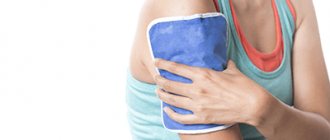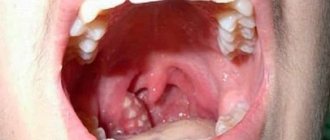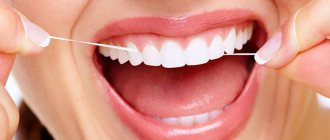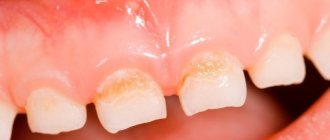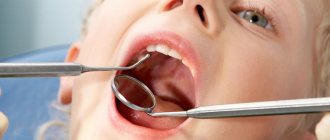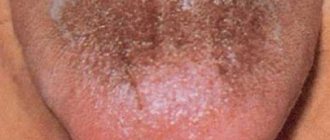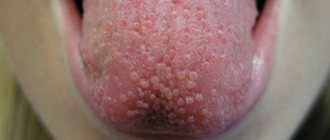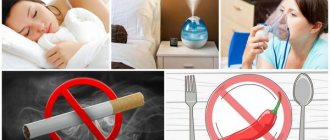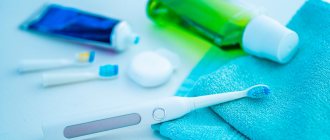Pathologies of the gastrointestinal tract are not uncommon in modern times. An incorrect daily routine, coupled with poor quality nutrition, are the main causes of stomach diseases. The symptoms and pathogenesis of such ailments are quite wide.
Some of them are manifested by abdominal pain, others by vomiting. In today's material, our resource decided to pay attention to the pathology manifested by bitterness in the mouth and nausea.
Where does the bitter taste come from?
An unpleasant taste may be present constantly or appear periodically. This symptom is associated with the release of bile into the esophagus. Patients often notice a bitter taste in the mouth in the morning, especially when eating fatty foods the day before and after sleeping on the left side.
Bile is a liver secretion that is involved in digestion. The fluid flows through the ducts into the gallbladder and from there into the duodenum. Normally, bile does not flow into the esophagus, and the person feels well.
After eating certain types of food, the liver may react by producing more secretions. The volume of bile in the intestines increases, and a small part enters the esophagus, causing a bitter taste in the mouth. The same reaction occurs when using certain medications or when exposed to other factors. In any case, an unpleasant taste is a reason to consult a doctor. Only by identifying the cause of bitterness in the mouth can a person’s well-being be improved.
Symptomatic therapy
You can reduce discomfort and the secretion of bile with the contents of the stomach by adjusting your diet. To reduce the frequency of vomiting, it is necessary to eat small portions 5-6 times a day, exclude fatty and smoked foods from the diet, which stimulate increased bile secretion. To relieve other dyspeptic disorders that accompany vomiting, it is recommended to consume more mucous soups and cereals, which protect the walls of the stomach from the aggressive effects of bile.
In order to reduce unpleasant symptoms until the causes of bile vomiting are established, you can use various herbal infusions (valerian, rose hips, mint) that eliminate nausea and vomiting. Among medications, prokinetics are often used to improve gastrointestinal motility, antispasmodics, and choleretics. You should avoid taking strong antiemetic drugs without a doctor's prescription, as this can be dangerous to your health.
Possible causes of bitterness in the mouth
Diseases of the biliary tract
Bile transport in the body is disrupted in chronic cholecystitis, cholelithiasis, biliary dyskinesia, hepatitis, and cirrhosis. Spasm or blockage of the duct leads to stagnation of secretions.
Important!
Bitterness in the mouth after eating can occur even after removal of the gallbladder. The reason is that bile is constantly produced in the body, and if a person does not adhere to a diet after surgery, some of the liquid may be thrown into the esophagus. You won’t be able to get rid of the bitter taste without following a diet.
Digestive system diseases
Diseases of the liver, esophagus, stomach, and intestines are accompanied not only by constant bitterness in the mouth, but also by other characteristic symptoms:
- nausea, vomiting;
- severe heartburn;
- belching;
- constipation or diarrhea;
- pain in the epigastric region.
The symptom of bitterness in the mouth can accompany giardiasis, gastritis, duodenitis, peptic ulcer, etc.
Other pathologies
Various oral conditions can cause a bitter taste:
- diseases of the tongue and gums: gingivitis, stomatitis, glossitis;
- insufficient oral hygiene;
- incorrectly installed fillings and dentures.
A bitter taste in the mouth may appear when taking certain anti-inflammatory, antihypertensive, anticonvulsant, hypnotics, and antibiotics. The same symptom is accompanied by poisoning with copper, mercury, lead, and the development of cancer pathologies. Severe bitterness in the mouth can be a reaction to taking herbal remedies: decoctions and infusions of herbs, nuts, sea buckthorn oil.
Survey
When a patient complains of vomiting bile, a set of laboratory and instrumental methods is required to assess the condition of the gastrointestinal tract. An examination prescribed by a gastroenterologist is aimed at determining the pathological condition that caused the release of bile-colored vomit. The most valuable diagnostic methods are:
- Endoscopic examination
. FGDS is used to visualize the esophagus, stomach, and upper parts of the duodenum. The method effectively detects inflammatory changes in organs, ulcerative-destructive processes and dysfunction of muscle sphincters. Additionally, a biopsy of pathologically altered tissue areas is performed for histological analysis. - X-ray methods
. Taking X-rays of the gastrointestinal tract with oral contrast is aimed at studying the structure of all parts of the digestive tract, detecting nonspecific signs of inflammatory processes and peptic ulcers. For a detailed study of the hepatobiliary system, percutaneous or retrograde cholangiopancreatography is performed. - Duodenal sounding
. A study of the functional activity of the gallbladder with an assessment of the microscopic properties of bile is often decisive for making the correct diagnosis; it is carried out in all patients with vomiting with impurities of bile acids. If an infectious etiology of the disease is suspected, bacteriological culture is recommended. - Ultrasonography
. Survey ultrasound of the abdominal organs is used as a non-invasive express method that reveals signs of pathology in a specific part of the gastrointestinal tract. In case of biliary diseases, a targeted ultrasound of the gallbladder is performed to study its morphological features and detect possible stones in the lumen of the organ. - Stool analysis
. The appearance of bilious vomiting is often accompanied by various changes in the coprogram. By studying the macroscopic and microscopic properties of feces, the quality of food digestion is assessed, and signs of possible pathology of the biliary system are detected. If the patient has a general infectious syndrome, a bacterial culture of stool is performed.
Laboratory methods are used to clarify the diagnosis: an analysis is often prescribed to determine the content of free and bound bilirubin in the blood, determine the concentration of amylase and lipase, and search for specific antibodies. After excluding organic causes of the symptom, if the disorder is possibly functional, studies of the autonomic nervous system and the patient’s mental state can be carried out.
Ultrasound of the gallbladder
What to do if you have a bitter taste in your mouth
The first thing you need to do is make an appointment with a gastroenterologist as soon as possible. The doctor will conduct a diagnosis and find out why bitterness and dry mouth occur and how to get rid of these sensations.
At the first consultation, the doctor interviews the patient. It is necessary to establish the period of maximum manifestation of symptoms. For example, increased bitterness in the mouth after eating may indicate overeating or disease of the bile ducts. If an alarming sign appears after taking medications, then most likely there is a violation of the intestinal microflora or a negative reaction of the liver. Bitterness in the mouth can occur in the morning or evening, after drinking alcohol, physical activity, and be accompanied by dry mucous membranes. All manifestations must be reported to your doctor.
A child has a stomach ache and vomiting - measures to prevent such cases
There is a list of preventive measures that will help avoid the return of the disease. First of all, observe the rules of personal hygiene - wash your baby’s hands before each meal and upon returning home from the street. You should also process foods well before eating them - wash vegetables and fruits. It is important to pay attention to the quality of the dish and its shelf life. Limit your consumption of unhealthy foods - fatty, fried and fast food. Reduce your intake of sweets and baked goods.
Limit your child’s access to household chemicals and medications, and discourage putting foreign objects in his mouth - toys and household items. If a child has an attack of vomiting, it is necessary to provide him with timely treatment. The same should be done if there is pain and bloating in the abdomen, or abnormal bowel movements.
Full list of recommendations:
- Make sure your child eats on time, but does not overeat. Sometimes the body gets rid of excess food through vomiting - this is especially important in infancy.
- Take your child for preventive examinations with a specialist. This will help prevent the development of many diseases.
- If there are any abnormalities or suspicions, consult your doctor immediately. Do not self-medicate. You should not prescribe medications to your child on your own.
- Follow the rules of personal hygiene. The baby should wash his hands before eating, use a personal towel, and so on.
- Process food before eating.
- Try to wean your child from putting any foreign objects into his mouth. Make sure that he does not touch household chemicals and medications.
- Add variety to your diet. The body needs useful microelements - vitamins and minerals.
- Control what your baby eats. Products must be fresh - always look at the expiration date. Minimize your consumption of fast food, chips, packaged juices and soda.
It is always easier to prevent the occurrence of a disease than to treat it. Following these easy prevention rules will help do this.
Expert advice
When there is bitterness in the mouth, self-medication is the most dangerous. It is believed that the main cause of the symptom is liver disease. Patients begin to make compresses on their own and drink herbal decoctions. Instead of relief, complications occur. The patient is sent to the hospital with severe pain, intoxication, peritonitis, etc. These are the consequences of trying to make an independent diagnosis. It turns out that the cause of the bitterness in the mouth was gallstones. A person independently drinks choleretic decoctions, stimulates the migration of stones, which safely get stuck in the duct and cause an acute attack. Instead of having the crystals crushed under medical supervision, the patient goes straight to the operating table.
Dzhgarkava Tea Gochaevna
Therapist-cardiologist Experience 5 years
There are other, no less dangerous cases. To get rid of bitterness in your mouth, you need to go to the doctor and cure the detected diseases. This is the only right decision.
What complications cause vomiting and diarrhea in a child?
We have already found out what to do if a child has a stomach ache and vomiting without a fever. However, if timely treatment is ignored, complications may arise.
The peculiarity of vomiting without an increase in body temperature is not a disease, but only a symptom of it. This pathology itself will not cause any complications. However, it may indicate the presence of serious diseases of the digestive system.
Such diseases can appear if treatment for the symptoms that caused the vomiting is not started in time. In many cases, the complications are quite serious, so it is better to hurry up and visit a doctor.
If vomiting continues for a long time, dehydration and weakening of the body cannot be avoided. Under the supervision of a doctor, it is necessary to give the child all the medications he prescribes. You should not self-medicate - this may not give any effect, or even lead to the opposite result.
Treatment
Diseases of the stomach, liver, intestines, gall bladder and other internal organs are treated primarily with diet.
All fatty, fried foods, smoked foods, hot and spicy seasonings, canned food, sausages, heavy foods, alcohol, coffee and sparkling water are excluded from the diet.
Depending on the diagnosis, a therapeutic diet can be selected.
For gastritis or reflux disease, medications that reduce the acidity of gastric juice or antacids are prescribed .
It could be Rennie, Almagel.
antispasmodics (No-shpa, Spazmalgon), antiemetic medications (Motilium, Domrid), and antipyretics (Paracetamol, Ibuprofen) can be prescribed
How to remove? Smecta, Vikalin, Motoricum, and choleretic drugs help normalize the functioning of the stomach and intestines.
If an exacerbation of gastrointestinal diseases occurs due to stress, sedatives are prescribed (Motherwort, Valerian).
For diseases of the liver and gall bladder, drugs from the group of hepatoprotectors (Carsil, Essentiale Forte, Gepabene) and enzymes are prescribed .
In advanced cases, surgical methods are resorted to.
Auxiliary methods of treatment for identified diagnoses are physiotherapy and therapy using traditional recipes .
It is imperative to give up bad habits, smoking and drinking alcohol to prevent the condition from worsening and the disease progressing.
In case of dental diseases, teeth are removed or treated is performed . The diet is also adjusted.
A man or woman vomits bile after drinking alcohol: what to do
Gastric lavage is the primary measure in case of poisoning. To cleanse the body, it is enough to drink 2 liters of clean water. But (!) this is provided that the person has not previously suffered a myocardial infarction and does not suffer from chronic diseases of the gastrointestinal tract or high blood pressure. Do not add any sweeteners or other ingredients to the water. The procedure is best performed in a sitting or standing position. In a difficult situation, cleansing is carried out on the side.
After gastric lavage, it is necessary to cleanse the intestines. An enema with warm water is used for this purpose. Using this procedure, it is possible to relieve pain and minimize the presence of toxins in the body. If bloating was observed, it will stop after the enema.
Note! The water temperature should be +35C.
Once the toxins are released, it's time to rehydrate. To do this, it is enough to drink small sips. clean (you can use mineral water, but still) water every 25 minutes.
If health does not improve, the patient should be placed on his side and allowed to fall asleep. In such a situation, you should not make sudden movements or lift weights. This will have a bad effect on your well-being.
As soon as the person wakes up and his condition improves, he can be offered chicken broth or oatmeal. After a couple of hours he can eat light soups.
